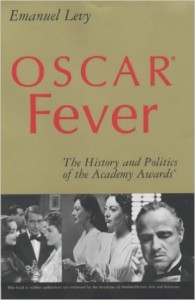In 1950, Sidney Poitier made a splashy screen debut in No Way Out, Joseph L. Mankiewicz’s socially-conscious liberal film about racism in American society.

Theatrical release poster
|
|
It focuses on the prevalent racism in one “typical” hospital, representing a microcosm of American society at large.
Poitier plays the young, passionate and idealistic black doctor, Luther Brooks, who’s assigned to take care of a vicious criminal named Ray Biddle (Richard Widmark), when he gets shot and wounded.
Dr. Brooks, hired by the police hospital as part of an overall program to integrate the staff, stays calm, collected and professional even as Ray spouts racist remarks, mistreating and offending him in public, in front of the other doctors and patients.
At one point, Ray says: “Has anything left of niggertown.”
Then the mother of the white wounded man offends Dr. Brooks by telling him to “keep your black hands of my boy,” before spitting on his face.
When Ray’s brother, who’s also wounded, dies in the hospital, the bigot holds Dr. Brooks responsible for the death. Moreover, he informs his gang of hoodlums to punish the city’s black residents.
Unexpectedly, though, the blacks fight the whites off. Ray then breaks out of the hospital, taking Dr. Brooks as a hostage. His plans to kill the doctor are thwarted by Ray’s girlfriend (the beautiful Linda Darnell), who takes a long time before realizing the extent and the source of the deep-held hatred.
The young Ossie Davis and Ruby Dee, who would become major players in American cinema over the next half a century (including significant performances in Spike Lee’s 1989 “Do the Right Thing”), appear in secondary parts.
This was the best year in Mankiewicz’ career, in which he also won the Best Director and Best Screenplay Oscar for All About Eve, starring Bette Davis.
“No Way Out” was considered too provocative a film in 1950, paving the way to other liberal films out of Hollywood in various genres, including Westerns.
And, of course, it launched a spectacular career for the talented and handsome Poitier, who in a few years would win an Oscar and become the most popular movie star (white or black) in American cinema.
The performances of the entire cast are good. Linda Darnell, then at the peak of her career and beauty, appeared the previous year in Mankiewicz’s Oscar-winning “A Letter to Three Wives,” giving an emotionally strong performance.
As for Widmark, he may be one of the few Hollywood stars, who could go back and forth between plays villains (he made his debut in the 1947 noir film, “Kiss of Death,” throwing an old woman down the stairs, off her wheelchair) and heroes in crimers, melodramas (Minnelli’s “The Cobweb”), and Westerns (John Ford’s “Two Rode Together”).
A decade after it was made, in 1962, “No Way Out” was still regarded too risky and controversial to be widely broadcast by NBC on its weekly, “Saturday Night at the Movies.”
Oscar Nominations: 1
Story and Screenplay: Joseph L. Mankiewicz and Lesser Samuels.
Oscar Awards: None
Oscar Context:
The winners of the Story and Screenplay Oscar were Charles Brackett, Billy Wilder, and D. M. Marshman for Sunset Boulevard.
Cast
Richard Widmark as Ray Biddle
Linda Darnell as Edie Johnson, Mrs. John Biddle
Stephen McNally as Dr. Dan Wharton
Sidney Poitier as Dr. Luther Brooks
Mildred Joanne Smith as Cora Brooks
Harry Bellaver as George Biddle
Stanley Ridges as Dr. Sam Moreland
Dots Johnson as Lefty Jones
Ossie Davis as John Brooks (uncredited)
Ruby Dee as Connie Brooks (uncredited)
Bert Freed as Rocky Miller (uncredited)
Fred Graham as Wilson (uncredited)
Frank Overton as Intern (uncredited)
Amanda Randolph as Gladys (uncredited)
Frank Richards as Mac (uncredited)
Ray Teal as Day Deputy (uncredited)
Ian Wolfe as Watkins (uncredited)
Will Wright as Dr. Cheney (uncredited)
Credits
Directed by Joseph L. Mankiewicz
Written by Lesser Samuels, Mankiewicz
Produced by Darryl F. Zanuck
Cinematography Milton R. Krasner
Edited by Barbara McLean
Music by Alfred Newman
Color process Black and white
Production and distribution: 20th Century Fox
Release date: September 1950
Running time: 107 minutes
Box office $1.3 million




